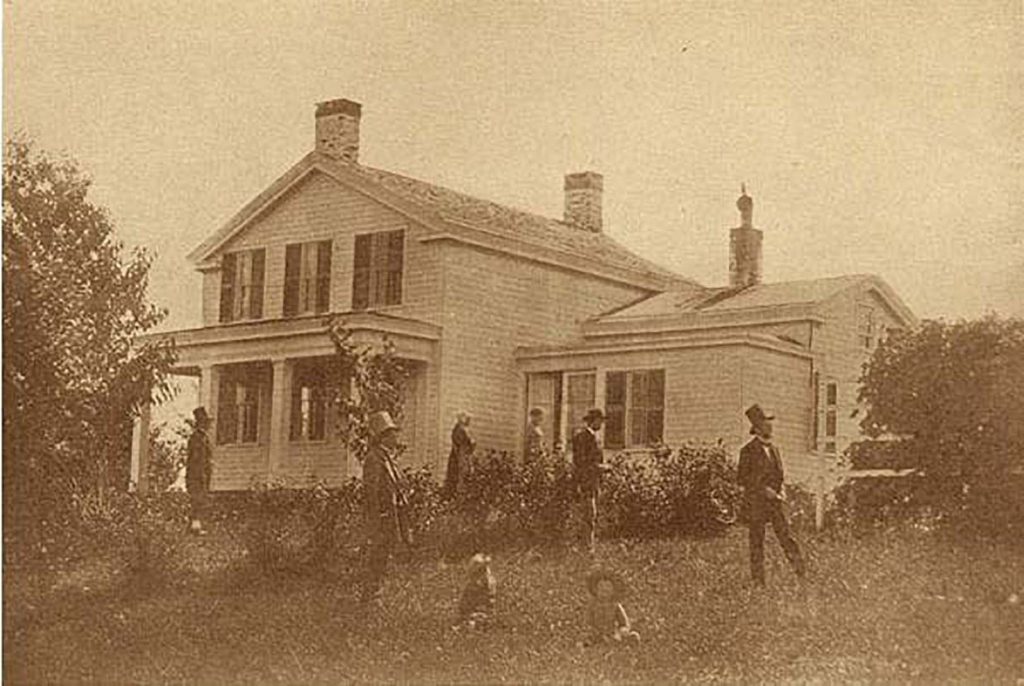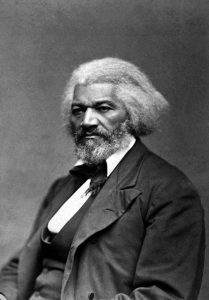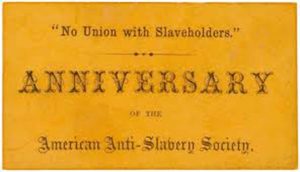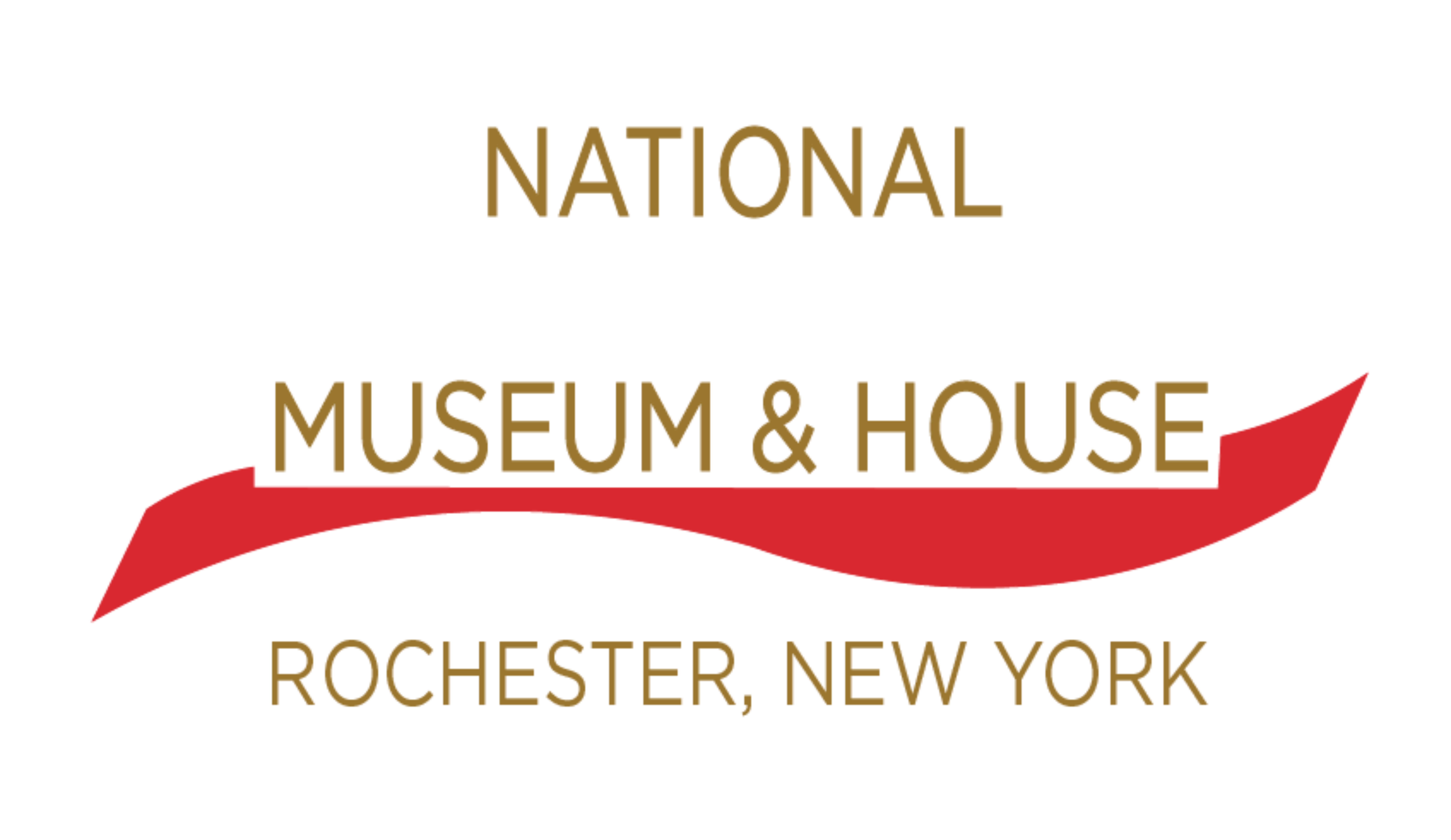

Susan B. Anthony was a Quaker. Quakers believed the inner light of God existed in every human. It did not matter if you were a man or woman, black or white, every soul was equal in the eyes of God. Not surprisingly, Quakers freed their slaves in the 1700s and many activists in the abolitionist and women’s rights movements were Quakers.
When the Anthony family moved to Rochester in 1845, their farmhouse became a meeting place for abolitionists, including Frederick Douglass and William Lloyd Garrison. In 1856, Susan B. Anthony served as an American Anti-Slavery Society agent, arranging meetings, making speeches, putting up posters and distributing leaflets. When Susan B. Anthony encountered hostile mobs, armed threats, and had things thrown at her, she did not quit. Even when her image was hung in effigy and dragged through the streets of Syracuse, she kept on working for abolition.
During the Civil War, Susan B. Anthony and fellow reformer, Elizabeth Cady Stanton, put their women’s rights work on hold to organize the Woman’s Loyal League. The league gathered thousands of petitions to outlaw slavery. After the 13th Amendment passed, making slavery unlawful, Susan B. Anthony and Elizabeth Cady thought the time had finally come for women’s suffrage. They demanded new laws protect everyone’s right to vote; black or white, man or woman. They were disappointed and disillusioned when women were excluded from voting rights under the newly adopted 14th and 15th Amendments.
Click here for a link to Historic Speeches on Abolition.

